How The Beatles Recorded One of the Greatest Rock 'n' Roll Albums of All Time

For me, it's Revolver. That's where the change happens," Ringo Starr told me in 2014 when I asked him to single out his favorite Beatles album. "That's where we took off creatively."

Revolver, the Beatles' seventh album, was released 50 years ago today. For years, it was just another album in the band's catalog, overshadowed by the album that followed it, 1967's Sgt. Pepper's Lonely Hearts Club Band, and which marked a cultural shift-not to mention a change in the Fab Four's collective appearance. Then, as the years passed, critics and fans began to look at the Beatles' studio output for artistic inspiration and clues to their greatness. Revolver began to be seen as one of the band's best, and perhaps the ultimate Beatles album, even greater than Sgt. Pepper's, the White Album, and Abbey Road.
"I remember vividly the period of time when Revolver suddenly became a venerated album," Beatles biographer Mark Lewisohn says. "It was the 1980s. It was really something of a hidden gem until then. Sgt. Pepper had the effect of casting the other albums into shadow because it was so huge. But then suddenly it became a cool thing to say you thought Revolver was their best album, and suddenly it picked up notice that it hadn't had before the 1980s."
"I've never played like that before, and I've never played like that since," recalls Starr. "But it was just how it happened."
For years, 'Revolver' was just another album in the band's catalog, overshadowed by the album that followed it, 'Sgt. Pepper's Lonely Hearts Club Band'.
It was a series of seemingly inconsequential events that led to the making of what is now widely considered as one of the greatest albums of all time.
"I think that as the Beatles' performing career came to a crest in 1965, when they started out the North American tour playing at Shea Stadium, which John would describe later as 'the top of the mountain,'" says Robert Rodriguez, the author of Revolver: How the Beatles Reimagined Rock 'n' Roll. "There's nowhere but down from there. No matter how much fun they might have been having at the time, it had become an obligation. It definitely wasn't something being done for musical reasons, because nobody was really listening. So I think by the end of their performing in '65 they had grown weary of it and their ambitions were growing musically and they were listening to what was going on around them. I think they felt a competition with Brian Wilson and Dylan and the Byrds, while at the same time being very, very mindful of not repeating themselves and moving their art and goals further."
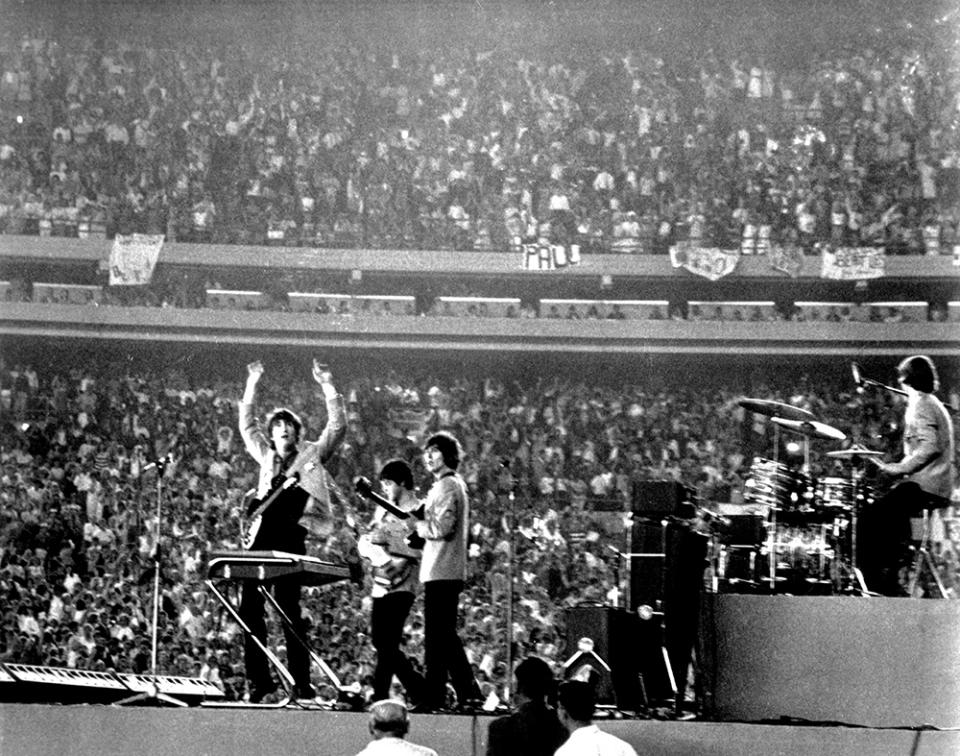
"If you look at the Beatles' tour diary, it's just fascinating," Giles Martin, the son of the Beatles' producer George Martin, and the band's current go-to producer for its recent reissues, told me in an interview for Esquire in 2014. "You just look at it and think, 'When did they record?' I remember looking at it thinking that it was just completely bonkers. You see a four-day gap, and they made an album there."
As 1966 dawned, however, that frantic pace ebbed.
"The beginning of 1966 had been set aside as a break in which they would make their third film," says Lewisohn. "For one reason or another, not least of which was they couldn't agree on the right script, it never happened. And so the period that had been set aside became a period in which they had time to rest and relax."
"I remember an article in their fan magazine, Beatles Monthly, where they're talking about what they're listening to, and there was a quote from John, who was marveling at the new Beach Boys single 'The Little Girl I Once Knew' that came out the fall of '65," Rodriguez remembers. "He says explicitly, 'This is what you can do when you're not beholden to the road. You know, Brian Wilson, he just sits in the studio and comes up with all these great ideas and look at what the results are.' So they'd been thinking amongst themselves, 'Well, what can we do?' So when the opportunity came, and they had this block of time, they seized the opportunity."
But the Beatles were still on a strict schedule, with two 14-song albums due each year. Work began in earnest on the follow up to 1965's hugely successful Rubber Soul.
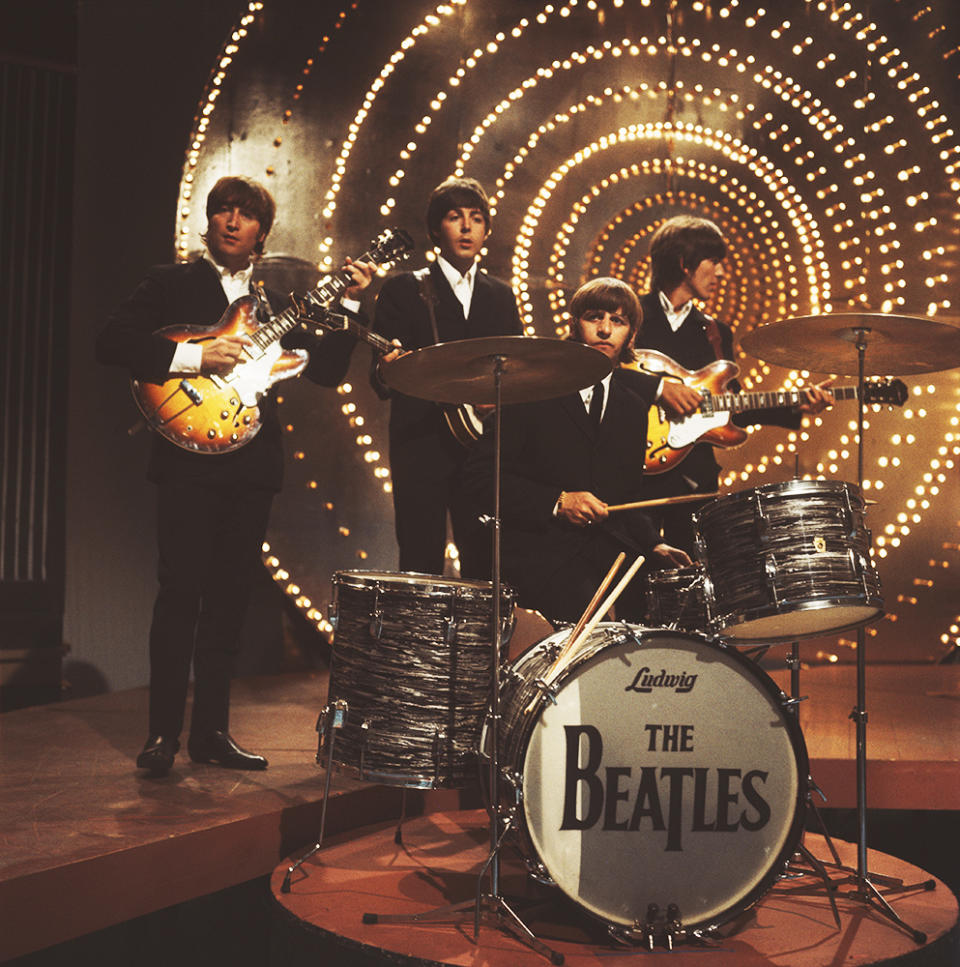
"They set an impossible bar for themselves, I think," says Savage. "Rubber Soul is a great album, but there are a couple of clunkers. But on Revolver, everything they'd been experiencing is all in there. You have the current preoccupations with drugs and Indian music and the Beach Boys and Dylan and The Byrds. It also has a fuller sound than Rubber Soul. The production's much smoother. Like Pet Sounds, it's a well-constructed program of music. And it's a very fully realized drug album."
"You know, it's no secret that we used to like a bit of the Bob Marley," says Starr.
On the Beatles' first tour of America, in 1964, they'd been turned on to marijuana by Bob Dylan. The following year, Lennon and Harrison were slipped LSD by their dentist. Starr later joined them on a trip, though it would be awhile before McCartney would partake.
"One of the things about their use of LSD, and indeed marijuana as well, is that nobody knew they were taking drugs, so this album was received through the filter of innocence by its listener," says Lewisohn. "One must keep in mind that the knowledge we have now, which colors the way we listen to Revolver, was not present at the time it was released."
Nobody knew they were taking drugs, so this album was received through the filter of innocence by its listener.
It had obviously affected their creative output, however. "John Lennon's songs on Revolver reflect precisely where he was at that point, which was someone who was doing a lot of reading and a lot of acid and was looking at life through a different prism," explains Lewisohn.
"I think that Paul is extremely mindful that John has just contributed a superb batch of songs to Rubber Soul," says Rodriguez of the ever-competitive McCartney. "So Paul digs deeper, coming up with 'Here, There and Everywhere,' 'For No One,' 'Eleanor Rigby.' These are not typical Paul McCartney songs. They're social commentary. They're very stark, non-sentimental breakdown-of-a-romantic-relationship songs. That's a well that he would never draw from much again. Even John had praise for them. It's Paul at the top of his game."
George Harrison, the junior Beatle-at least in the eyes of the dynamic duo of Lennon and McCartney-was coming into his own, as well.
"George was really evolving by this point," Lewisohn says. "He benefitted enormously from the three- or four-month interlude that they had, not least in the fact that he was beginning to immerse himself in all things Indian." Robert Rodriguez echoes that sentiment. "George is really on the ascent within the Beatles as a creative force," he says. "Not only does he get three songs on the album, but he gets the leadoff track."
With everyone's contributions at such a remarkable level, all that was left was for the Beatles to come up with something for Starr. The seemingly slight song Lennon and McCartney came up with for their band mate, "Yellow Submarine," has proved enduring.
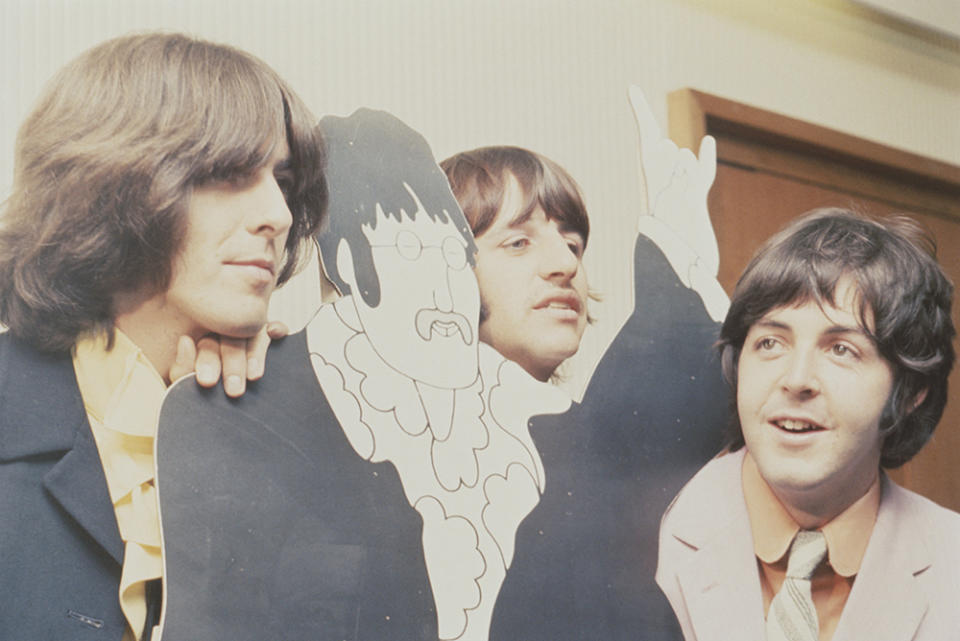
By the time the band entered Abbey Road's Studio Three in the spring of 1966, they were at a creative crossroads. While they might have still looked like the lovable moptops that everyone knew from The Ed Sullivan Show, the batch of songs they'd assembled were unlike anything they'd tackled before. Now, they were ready to push the limits of studio technology to its breaking point.
"There was no ceiling in anything they did, and that revealed itself in '66 and '67," says Giles Martin. "They just had their heads down. Their ambition was to take over the world with great music."
Their ambition was to take over the world with great music.
"They were self-consciously trying to make this great leap forward in a way that they didn't with Rubber Soul," explains Rodriguez. "There were advances on every Beatles, of course, but it was business as usual in that they had to have the album out by Christmas, using whatever material they had. Then came Revolver."
For the Beatles and George Martin, the sky was truly the limit.
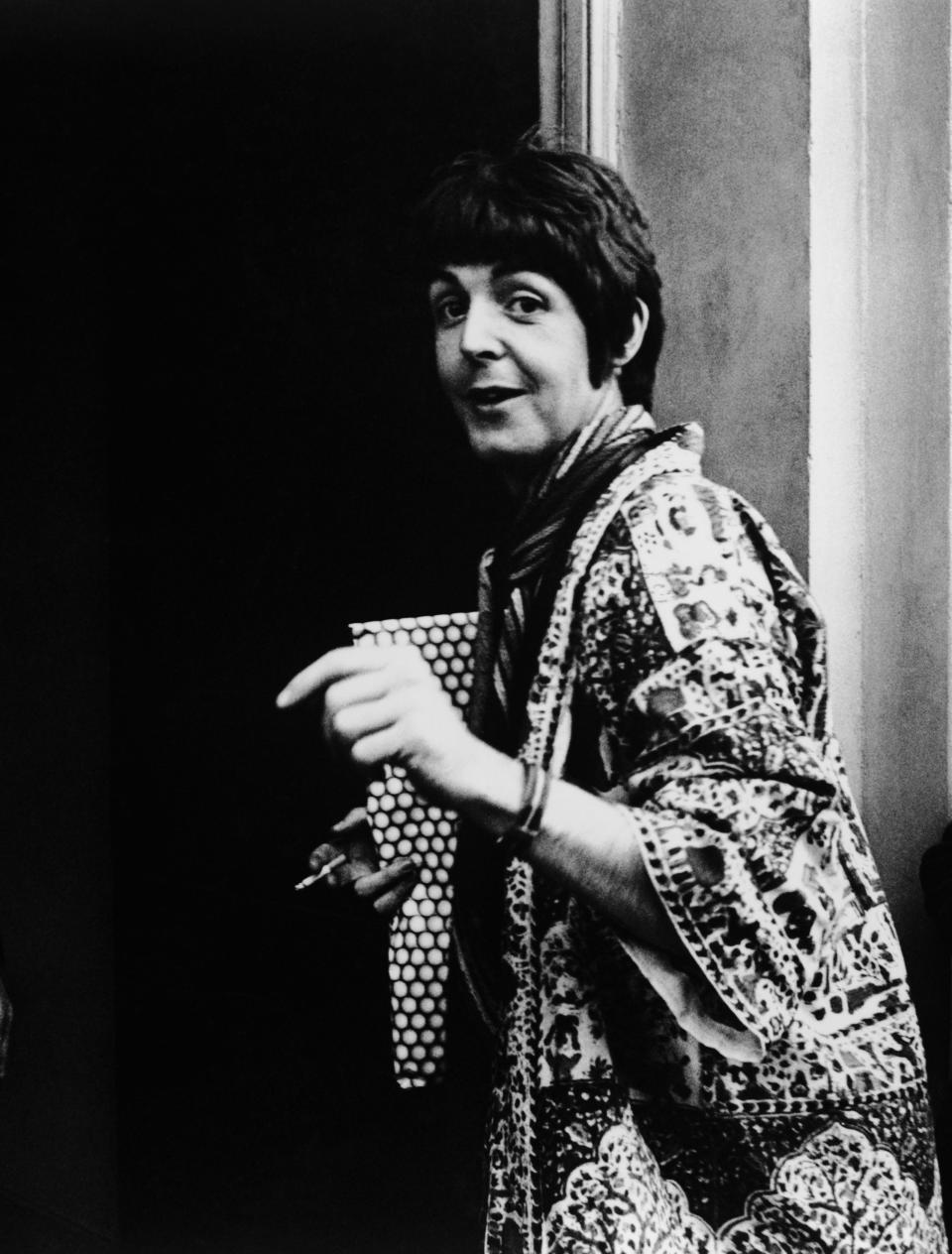
"You have to envision in your mind how you're going to hear it," Giles Martin says his father told him of his greatest successes as a producer. "You can only really envision what you know, unless you're very forward-thinking. The Beatles were certainly forward-thinking."
"They all had that in common in that they all had an interest in finding sounds, and in using the equipment to its maximum," adds Lewisohn.
Along with a producer and engineering team that would indulge their every wish, the Beatles also had a luxury unlike any artist before them. "The contract that they had with (their record label) EMI gave them unlimited studio time at no cost to them, and this was the first project on which they really stretched out, because they began recording it in April and didn't finish until June," explains Lewisohn. "So they were enjoying the opportunity to explore their own creativity. Rubber Soul, which is obviously a highly creative piece of work, was actually done in a hurry. But on Revolver they took as long as they wanted to take. The pressure was self-imposed."
And so, on the very first day of the recording sessions, April 6, 1966, the Beatles laid down Lennon's "Mark I." Eventually, it would be known as "Tomorrow Never Knows," a precursor to ambient and techno, using tape loops as a primitive equivalent of sampling, a Leslie speaker to alter Lennon's vocal and a new invention, Automatic Double Tracking, so that the notoriously impatient Lennon wouldn't have to sing his part twice, over a single, droning C major chord.
"Everybody keyed into what 'Tomorrow Never Knows' was and could be and gave it their best," Lewisohn contends. "We live in a world now where anything can be done, more or less any sound can be had at the press of a button. There isn't much that we haven't heard. So it's hard to remove what you know and take yourself back in time to a point when these things had never been heard before. Then, with that in your pocket, you have to stop and think, 'What kind of a mind can create something like this?' Even now, it's one of those tracks that in still, 50 years on, stops you in your tracks. What confidence they had in their ability. What scope they had in the vision of where music could go."
What confidence they had in their ability. What scope they had in the vision of where music could go.
As vital as Lennon, McCartney and Harrison's contributions were to Revolver, there's an unsung hero, too. "I play to the song," the characteristically humble Starr says when asked about his remarkable contributions to Revolver.
"For a guy who almost boasted that he never practiced his drums, that he only ever played when he was playing with those guys, whether it was in the studio or on tour, his playing, especially from Revolver on, is just astonishing," says Rodriguez. "This could have been a point where a lesser drummer would have fallen behind. But he's doing this incredible, amazing, unheard-of stuff. But that's for a couple of reasons. One is, he was always this drummer that was very attuned, not necessarily to the structure of the song as much as he was attuned to what the singer was doing. He's responding to the dynamics of whatever is going on in the song rather than the typical structural points that drummers focus on. And the other thing, and I think he has obliquely commented on this, was the fact that in 1965 he had his first acid experience. So his approach was going to necessarily be different because now he was looking at everything he did in a different way."
Starr has a more straightforward perspective. "If you look at the Beatles' career, it got a bit rough at the end, but it didn't matter what was going on because once the count-in happened, we all gave everything," he says. "We could read each others' minds."
He also contends that his foil in the Beatles' rhythm section, Paul McCartney, was another key. "In all honesty, nobody knows me as a musician better than him," Starr explains. "We were in 'that band,' the bass and drums. To this day, he's still, for me, the most melodic bass player. He just has a way. I love performing with him. It's always exciting."
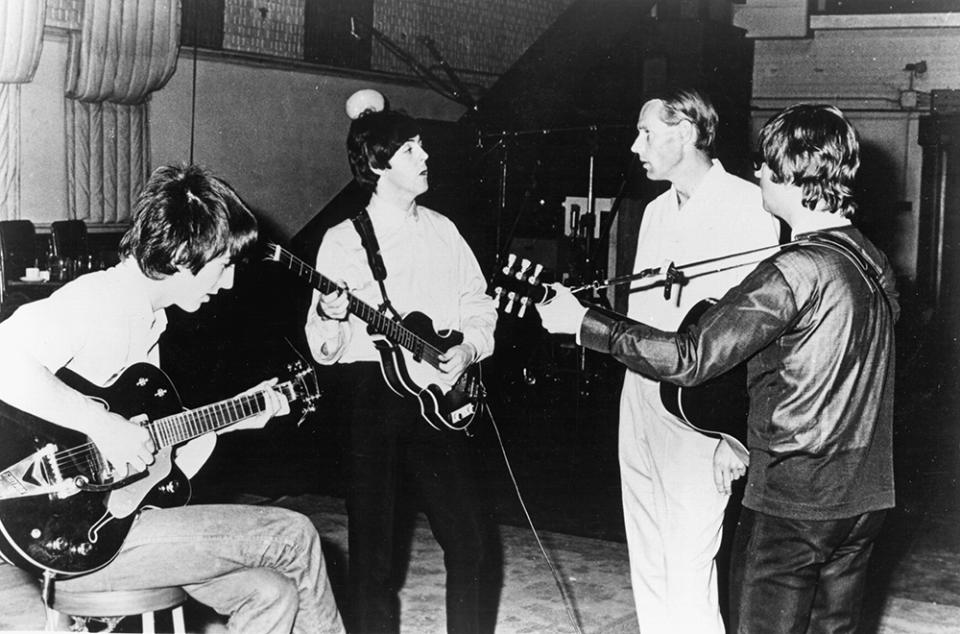
With four months of studio work behind them, the Beatles left the mixing of Revolver primarily in the able hands of their trusted producer, George Martin. "My dad always said about mixing that it's an attempt to create a version that's the best live performance that there is," Giles Martin says. "The further intention is to paint new pictures."
And paint Martin did.
"This was an era when producers didn't have to be that sensitive, they could just dictate," Rodriguez explains. "George Martin was willing to facilitate and help them grow, and he nurtured them because he recognized the latent power that was there. And he had exactly the right background to do something bigger than rock and roll with them. It was this marvelous, miraculous combination."
"George was the right man for the job; the right man for us," Starr says, clearly in agreement with the conventional wisdom about Martin. "He was full of ideas and was open to anything we threw at him. And we threw all sorts of things at him."
Fiercely protective of their studio creation, the Beatles hit the road in the summer of 1966 on their last tour, without a single song from Revolver in the set list.
"I think they really saw it as a different job," Rodriguez contends. "They're wearing two different hats at that point. In their own heads, they see this as a new phase, even if they hadn't formally decided yet that they weren't going to tour again.
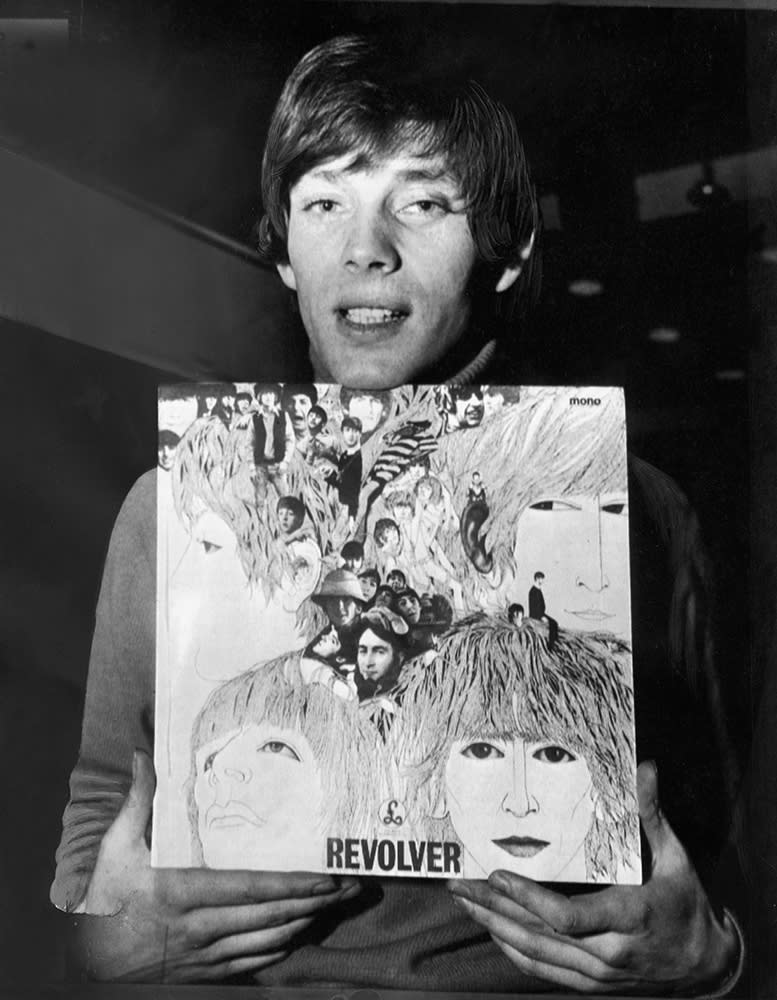
While Revolver sold well, without the rock journalism that would become ascendant in the coming year, and would elevate 1967's Sgt. Pepper's Lonely Hearts Club Band via covers on Time and Life, it came and went like each Beatles album that had come before it.
"They were knocked back on their heels by Lennon's 'bigger than Jesus' comment anyway, so nobody was going to talk about the record," contends Rodriguez. "And they barely acknowledged its existence, going on tour without even playing any songs from it. So 'Eleanor Rigby' didn't go straight to number one, and they got this pushback from the media that had been waiting for a chance to knock them down a few pegs since they first came to America."
Though the Beatles made no official announcement that they had stopped touring, as 1966 came to a close, with no Christmas shows in the U.K. and no new Beatles album in the shops, the press sharpened their collective knives once again. They were finished, they'd split up, the entertainment columns said. But then, in early 1967, came "Strawberry Fields Forever" and "Penny Lane," with yet another new sound and, importantly, a new look, calculated to make sure that no one was going to ignore the Beatles' next album the way they did Revolver, and the rest, as they say, is history.
"But you never see the four of them pulling as hard in the same direction, on the same page, to make great Beatles music again after Revolver the way they did then," Rodriguez says, summing it all up.

